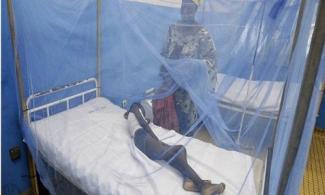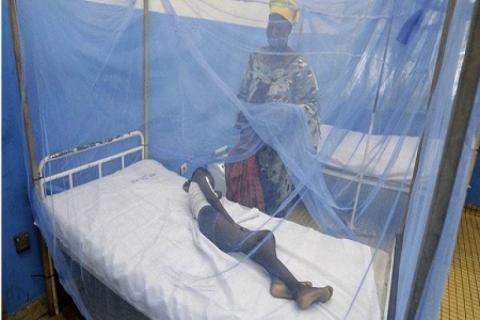
The country had received eight million LLINs ('treated' mosquito nets)
funded by two major international donors (the Global Fund to Fight
AIDS, Tuberculosis and Malaria & the US President Malaria Initiative).

Nigerian government through its Ministry of Health has broken the
silence over revelations that Long-Lasting Insecticide Nets (LLINs)
distributed to Nigerians between April 2017 and October 2018 were
substandard.
The country had received eight million LLINs ('treated' mosquito nets)
funded by two major international donors (the Global Fund to Fight
AIDS, Tuberculosis and Malaria & the US President Malaria Initiative).
While this move was meant to contribute towards Nigeria’s efforts to
combat malaria, authorities admitted that some of these supposedly
treated nets were, in fact, substandard and non-compliant with
requirements.
Investigations by SaharaReporters revealed that the nets were of the
Dawa-Plus model, a product by Pakistani manufacturer, Tana Netting,
now rebranded as Moon Netting.
Reacting to these findings, the National Malaria Elimination
Programme, a government agency attached to the Ministry of Health,
claimed that only a small percentage of the eight million nets in
question did not meet the required standards.
However, the agency did not give a specific figure.
According to NMEP’s National Coordinator, Dr. Bala Audu Mohammed,
substandard nets were indeed delivered to Nigeria and distributed
across the country, nonetheless, he insisted there was no cause for
alarm, advancing that the number was insignificant.
“Yes, we received these nets, but it is just a small number which had
issues,” he replied to SaharaReporters. He further stated that
although the nets did not have the required dosage of insecticide, the
physical barrier is still there."
He added, “It is like when doctors prescribed paracetamol, sometimes
you are asked to take 500mg which is the best, but if you use 200mg,
it is not the best but you have still used the drug.”
These concerns began to emerge in March 2019 when the donor
organization, the Global Fund, issued a statement and shared it with
all affected countries including Nigerian authorities which were
notified of quality issues with LLINs products of the brand DawaPlus
2.0 commercialized by Tana Nettings Co. Ltd.
“Twenty-one batches were found to have a content of deltamethrin of
less than 1.5 g/Kg which is the formal minimum threshold. Based on a
review of QC data, the manufacturer concluded that a majority of nets
manufactured between January 2017 and April 2018 were not manufactured
according to the formulation. The products were therefore not fully in
conformity with approved specifications,” the statement said.
Nigeria, along with other large populations in Africa and Asia, has
been recipient countries of substandard nets, but the national
coordinator Mohammed defended the decision.
“We might be creating another issue if we had made efforts to recall
the nets, so we decided to let it stay but made efforts to tests
supplies from then on and we also made sure we stop purchasing from
that manufacturer," he added, assuring that it was decided that future
procurements would only be through eligible companies which prove that
their nets are of the required quality and specifications.
Regarding the controversy surrounding the manufacturers of the nets,
Mohammed did not comment further on specific brands, nonetheless, he
stated that once the substandard nets were found out, all stakeholders
including the World Health Organisation and other donor organizations
were informed by his agency, and some decisions have been made.
“The most important thing is that we are no longer receiving nets from
that company,” he stated.
When asked whether he was aware the company had changed its name,
Mohammed argued that it would not matter if they had changed the name
or not, stressing that they still have to improve their product
quality and comply with global standards if they want Nigeria to
consider their product.
Testing prior to distribution averts the danger of sharing substandard
nets and avoids breaching trust and putting lives at risk, said the
NMEP official, insisting that Nigerian authorities have put in place
adequate measures.
“We have several testing facilities and we have quarantined over
200,000 nets that we found not up to quality,” he explained.
Mohammed further disclosed that his agency had distributed over 20
million nets since 2017.
According to the 2018 World Malaria Report, less than half of
Nigerians have access to treated mosquitos.
Meanwhile, over 190 million Nigerian women, men, and children are
constantly exposed to a serious danger of malaria infection,
constituting 52% of the world’s population vulnerable to the disease.
Over the past five years in Nigeria, the most conservative average
estimate of deaths due to malaria is around 70,000 per year.
These statistics illustrate the immense challenges Nigeria faces in
the uphill struggle against malaria.
Substandard solutions and low-quality products not only hamper these
efforts and cause setbacks, but also increase mosquito resistance and
consequently put more lives at risk.